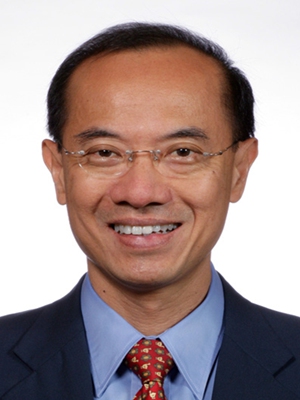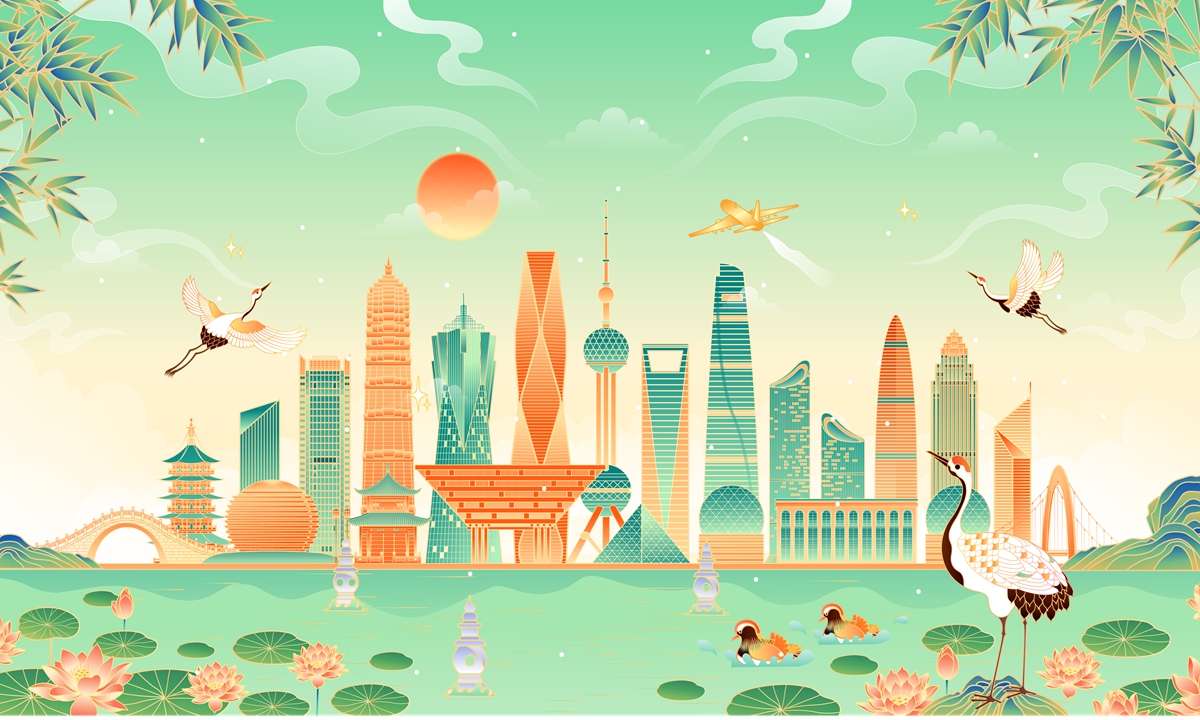Editor’s Note:
During the past decade, the world has increasingly witnessed a trend of “the East is rising while the West is declining” in the spheres of economy, security and discourse power. Western countries, particularly the US, plagued by internal woes, have sought the old path of passing the buck and instigating turmoil elsewhere to ease their own pressure. China, representative of the emerging countries, is proposing new solutions to global problems. By advocating win-win development, facilitating consultation and reconciliation and proposing a balanced and effective security mechanism, China is striving to build a community with a shared future for mankind.
In the 15th piece of this series, George Yeo (Yeo), former Singaporean minister of foreign affairs, shared his views with Global Times (GT) on how he understands China’s development and the role the Communist Party of China (CPC) plays in it.
GT: What impressed you most about China’s development and changes in the past decade?
Yeo: China has made enormous progress on all social and economic indicators since the establishment of the People’s Republic of China. The physical transformation of China is dramatic, even to casual visitors. Between November 2001 (when China acceded to the WTO) and the end of 2019 (at the beginning of the COVID-19 pandemic), China’s GDP grew seven times in real terms, nine times in RMB and 11 times in USD.
However, what to me has been the most remarkable is the cultural transformation of the Chinese people within their long civilizational tradition. The rejuvenation of the Chinese people is the rejuvenation of Chinese civilization, from an imperial system to a democratic republic, from a system which was largely agrarian, to one which is massively and continuously adapting to rapid technological development. Without a sense of civilizational continuity, rapid change can be very disruptive to social stability. The deep roots of Chinese philosophy enable China to grow and fan out without losing balance.

George Yeo Photo: Courtesy of Yeo
GT: Chinese President Xi Jinping has stressed on many occasions that “Democracy is not a special right reserved to an individual country, but a right for the people of all countries to enjoy.” How do you view Xi’s remark about democracy? What do you think of China’s exploration of democratic development that suits China’s national conditions?
Yeo: Democracy is not a magic formula. It is a struggle for the common good. The Chinese translation of democracy is derived from the Greek words demos (people as a whole) and kratos (rule). The legitimacy of democratic government is derived from the people as a whole. However, in all democratic countries, there are frequent attempts to misuse governmental power for the benefit of minority groups. Those who do so pretend to work on behalf of ordinary people when in fact they do not. In many Western countries, capture of government by well-organized small groups has led to widespread unhappiness. Despite repeated elections in these countries, nothing fundamental changes.
Ordinary citizens often have a low view of politicians in the West precisely for this reason. China faces a similar problem in persistent corruption. Since assuming leadership, President Xi Jinping has surprised Chinese people – and the world – by his determination to curtail corruption in China. He has made remarkable achievements in the last 10 years. Whether China is able to continue controlling corruption for the long term is the single most important challenge facing the CPC. It is China’s struggle for genuine democracy. The CPC needs to develop a system against corruption which is similar to the human body’s immune system against infection. Data analytics can be very helpful. However, good leadership is indispensable. No country or civilization in history has been able to guarantee good leadership. This is why I say that democracy is a struggle.
GT: How do you understand the notion of a community with a shared future for mankind put forward by President Xi?
Yeo: It is an important proposal for the world. The world needs a meta-system which respects diversity and at the same time brings us all together in a cooperative effort. This does not mean the end of international competition. There will always be competition. Suppression of competition is unhealthy. However, like competitive sports, there must be rules and there must be limits on competition so that human civilization as a whole is not harmed. We are all in the same boat called Planet Earth. Mankind can only share a common future if we believe that we are all brothers. Confucius reminded us that within the four seas, all men are brothers. In February 2019, Pope Francis and the Grand Imam of Al Azhar University Ahmed Mohamed Ahmed El-Tayeb proclaimed our common humanity in Abu Dhabi. In October 2020, Pope Francis followed up with an encyclical titled Brothers All (Fratelli Tutti).
President Xi’s notion of a community with a shared future for mankind is not only a political hope, it is a moral challenge to us all.
GT: What role does the CPC play in Chinese revolution and development? What do you think are the successful experiences of the CPC?
Yeo: In name, the CPC is a political party like other political parties in the world. In essence, it is very different. Unlike political parties in Western liberal democracies, the origin of the CPC is Marxism-Leninism adapted to Chinese civilization. This profound difference leads to a common misunderstanding in the West about the nature of the CPC. When China became a republic in 1911, the Constitution of the Republic of China was based on the Western model. In addition to the usual three branches of government – Executive, Legislative and Judicial – Dr Sun Yat-sen added two more – Examinations and Inspection – to adapt the Western liberal model to Chinese society. This modified Western model did not succeed in transforming Chinese society. Indeed, it contributed to further imperialistic oppression of the Chinese people after World War I. Frustration with the inability of the Western model to save China led to the May Fourth Movement and the establishment of the CPC.
The CPC under Mao Zedong established China as a strong republic which stood up to external aggression. The CPC under Deng Xiaoping then made China an economically dynamic country. Developing China as a democratic, technologically advanced society, is however, an ongoing challenge. This challenge is made more difficult by increasing US antipathy toward China caused by growing insecurity in the US that China will displace it as the leading power in the world. The CPC represents the most vital part of Chinese society. Its mission is to lead Chinese society to the future. Like the Long March, the quality of leadership in the CPC, not size of membership, is of decisive importance.
The future is always marked by uncertainties. It is inevitable that the CPC will make mistakes, as it did in the past. Learning from past mistakes in order to minimize its occurrence going forward is critical. Human beings learn more from failure than from success. The 100th founding anniversary of the CPC should not only be a celebration. It is also a time to reflect on past mistakes, distill lessons from them, analyze current challenges objectively and find a way forward based on the specific conditions of Chinese society and the international situation.
GT: What do you expect from the upcoming 20th National Congress of the CPC?
Yeo: The 20th National Congress of the CPC is important not only for China but for the entire world. Every five years, the CPC holds its national congress as a very serious matter. Each national congress resets the course of the CPC and the direction of leadership of the Chinese people. The 20th National Congress is of particular importance because of the current state of the world. We are seeing changing global tides. The world is becoming irreversibly multipolar. The US is threatened by these changes and increasingly views China as a threat. China has become a domestic issue in the US, which is bad for China and the world. China has to manage US fears wisely. It has to maintain the health and vigor of its own society while, at the same time, preparing for a protracted struggle with the US. It is not an exaggeration to say that the decisions of the 20th National Congress will affect the prospects of war and peace in the world.













